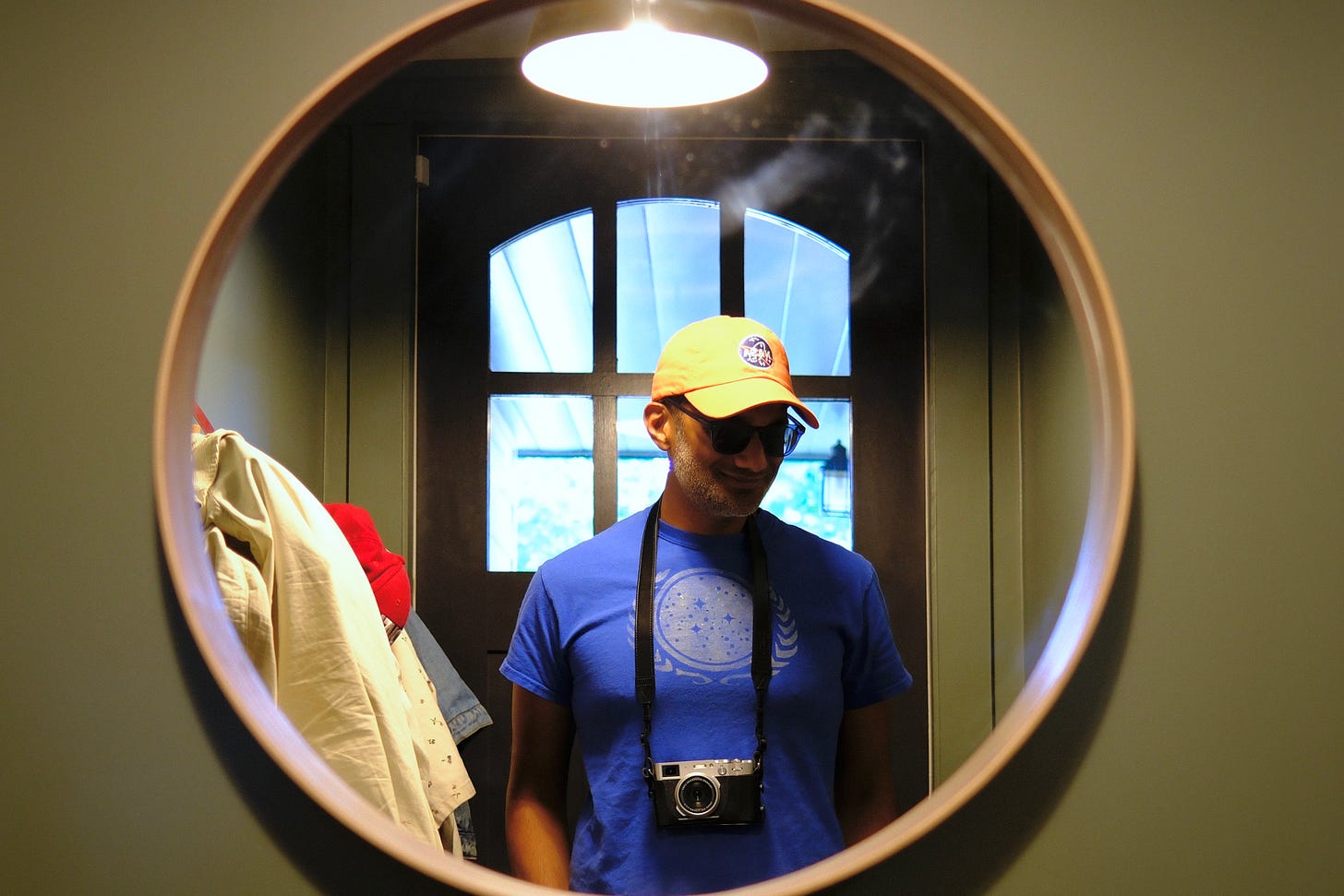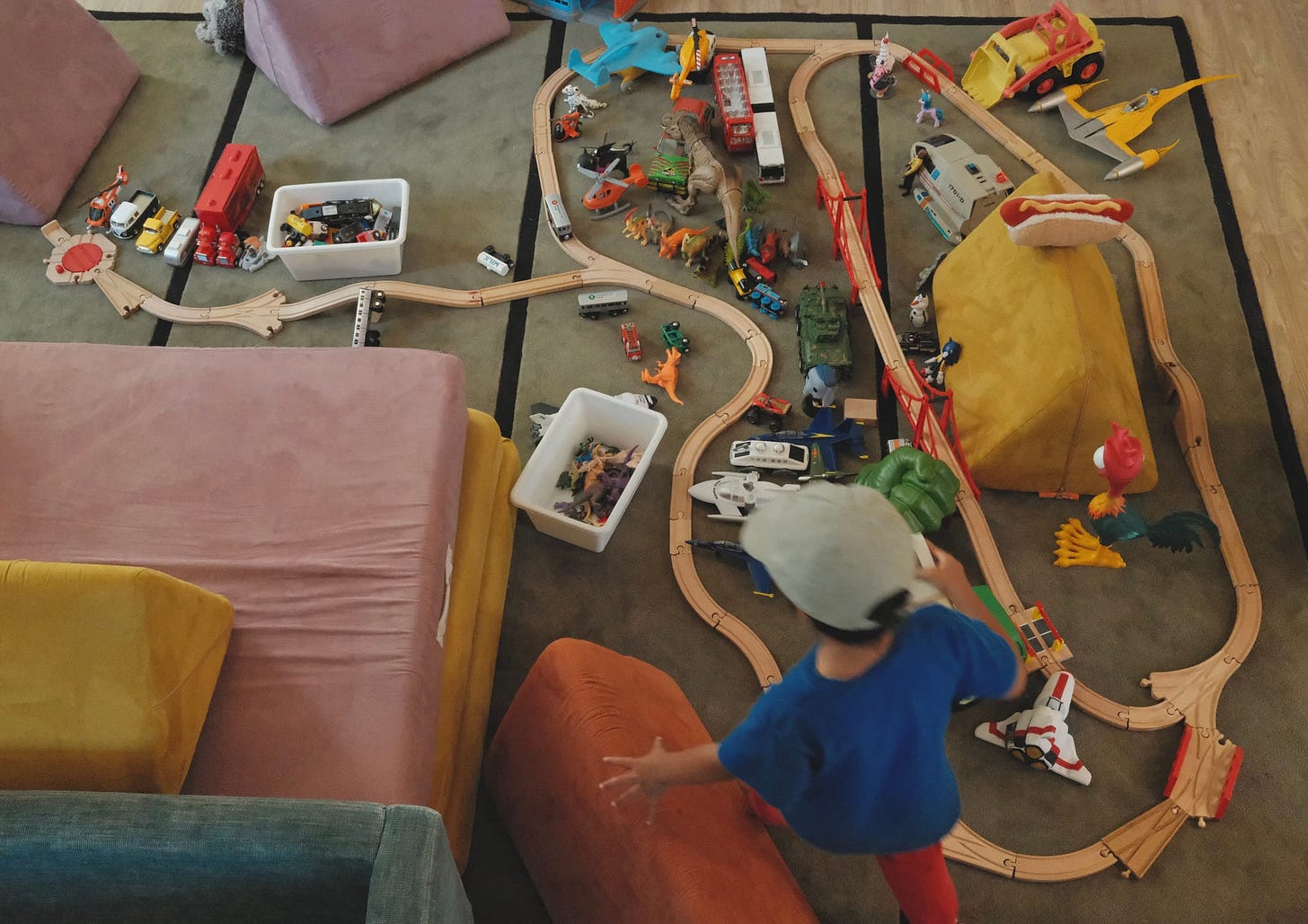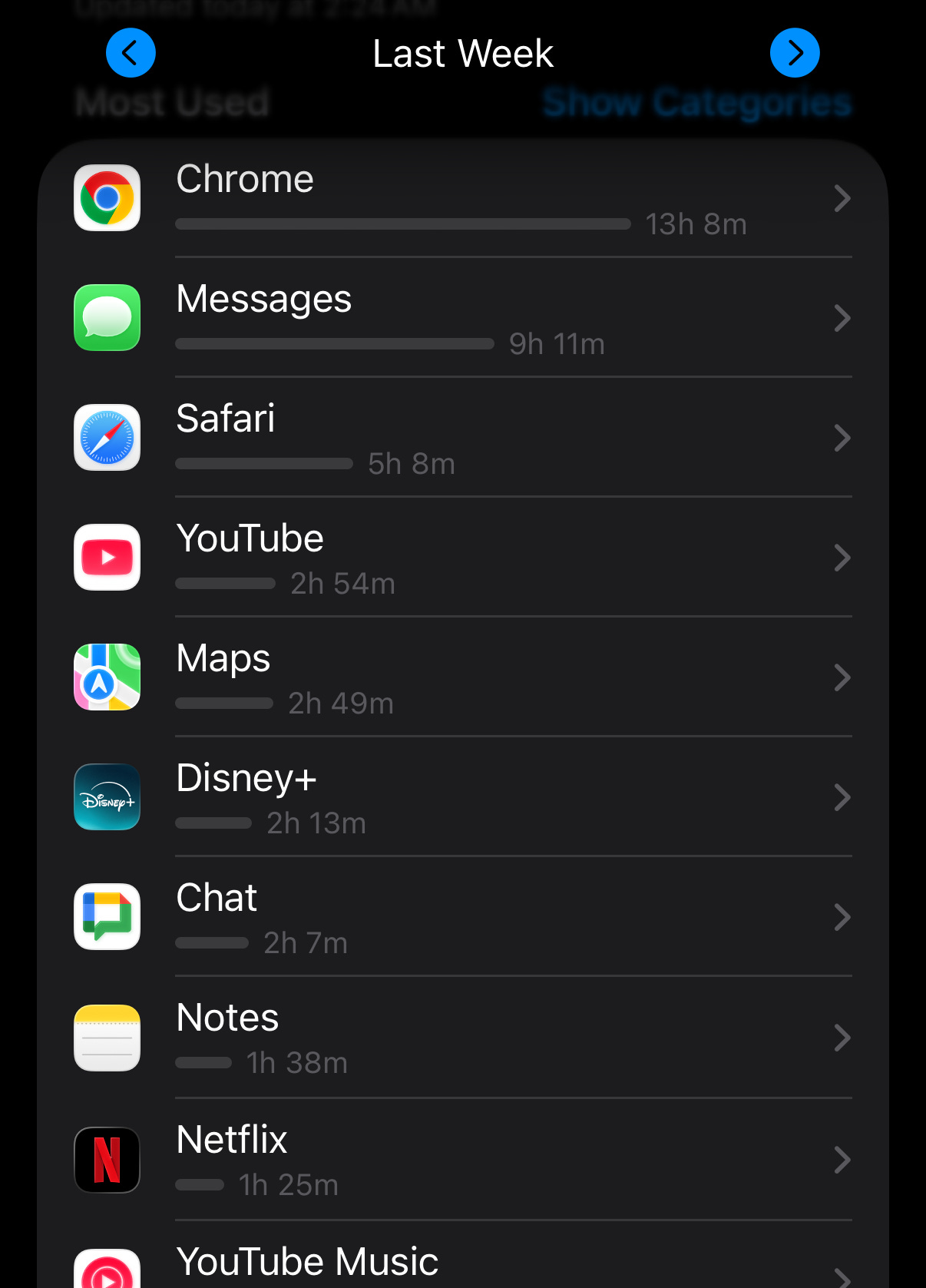The Algorithm Ruined My Secret Instagram
My plan to reconnect with friends totally failed.
I’ve been with my wife for over 25 years (we were high school sweethearts).
I live ten minutes from two of my closest friends.
I’m on a vibrant text thread with four guys who share my exact flavor of nerdy interests (sci-fi, tech, musicals).
And I’m a psychologist who helps people overcome social anxiety and live more authentically.
So why am I deeply unhappy with my social life?
Most days I’m in dad-mode. And the honest truth is while I love a lot about being a dad, I hate how little time I have left for my own friendships. It’s like all my time gets swallowed up by shuttling my kids around, making meals (and getting them to eat said meals), and making sure everyone gets to bed.
So I end up relying on social media to fill the gaps of loneliness in my day. Moments I want to feel connected, but end up feeling more like performance.
And because so much of my work involves social media, most of my accounts are public performances. What I post is real, but it’s still only a slice of me. The biggest parts (my family) stay offline to protect their privacy. They didn’t sign up for any of this (and my wife actively opts out).
I just want one place online that feels real.
So a few months ago, I had an idea: What if I created a private Instagram account, a “finsta” under a fake name, just for my closest friends? Daily moments from my whole life. A place where I could actually be myself with the people who know me best.
I made the account. Shared it over text. My friends were super supportive. Lots of ❗❗, ❤️, and 👍 tapbacks.
And for a few days, it felt great. Like 2005 Facebook!
Then, the algorithm kicked in.
My little private space was suddenly full of recommendations. Old acquaintances. Former coworkers. Even one guy who bullied me in elementary school. People I had zero intention of reconnecting with ever again (and some I was actively hiding from).
And I started wondering: Is my super-secret finsta being recommended to people I don’t even like?
Then came the influencers. The news posts. The reels that are actually promotions for OnlyFans. All things I never asked for.
All I wanted was to connect deeply with the people I love. And Instagram kept pushing me toward people I didn’t care about.
Then a friend texted:
“Hey, why’d you stop posting on your finsta?”
But I hadn’t stopped. I was posting every day.
It turns out that because I had a tiny follower count, almost no likes, and no shares, the algorithm decided my updates weren’t “worth” delivering to the people who wanted to follow me. In other words, my posts weren’t “engaging” enough, so Instagram buried them.
That was the moment I realized Instagram no longer cares about who you love. It cares how long you scroll.
This is what Cory Doctorow calls enshittification: when a product stops serving you and starts squeezing every dollar out of you.
Earlier this year, Mark Zuckerberg admitted in court what we’ve all been feeling:
“The friend part has gone down quite a bit…”
And Meta’s numbers back it up. Only 7% of Instagram time is spent seeing friends, down from 11% two years ago.
Meaning 93% of your “social” experience is now content, ads, and strangers.
A platform that once promised closeness has become a buffet of strangers and noise.
My finsta didn’t fail. The system failed me.
So I ended the experiment frustrated and honestly a little sad.
Because honestly? I have no idea where you’re supposed to go for real connection anymore.
All the other social media platforms work the same way.
IRL hangs sound great, but as Derek Thompson writes, “this is the anti-social century” and we’ve quietly designed hanging out out of everyday life.
So most of my “connection” happens on my phone.
My screen time says I spend 9 hours a week texting. Nine hours. A full workday. And somehow it still feels like I’m barely in conversation with anyone.
Julie Beck wrote about this in The Atlantic, and it hit a little too close to home:
“People think of their friends as audiences when posting.”
“Private messaging [has started] to look more like social media.”
“Group chats may make responding seem even less mandatory, because of the diffused responsibility of having several people in the conversation.”
Texting has become the new broadcast channel. High volume, low intimacy, zero accountability.
Tapbacks are the new engagement metrics. Your messages get filed somewhere between a news alert, financial scams, and an ad for jeans.
And I know I’m not the only one feeling this shift.
I asked you about this in a recent survey. Out of about 200 responses, 54% of you said you feel socially disconnected often or almost always.
And when I asked what was missing from your social life, a key pattern emerged:
“True connection, showing up authentically and not feeling like I have to perform or say something funny.”
“I wish I could talk to people about things like the news, politics, and mental health. It’s always on my mind but I just dance around it on texts.”
“I just want to exist together.”
We want to be ourselves, but the internet demands a performance.
We want depth with the people we love, but tech pushes us toward strangers we’ll never meet.
So I’ll end with the questions I’m obsessed with now:
How do you stay in touch with the people you care about?
I genuinely want to know.




